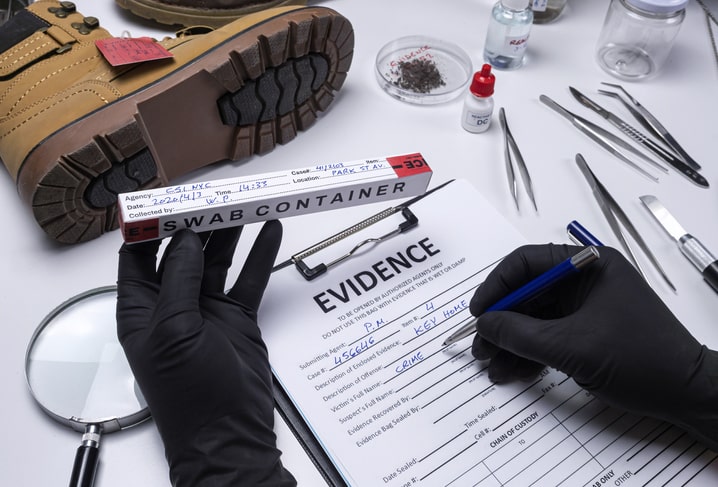At Lotze Mosley, LLP, our Maryland and Washington D.C. criminal defense attorney knows that law enforcement across the United States relies heavily on forensic techniques, including DNA analysis, to investigate crimes.
 Beyond its collection, in most cases, when a criminal case goes to trial, the jury demands DNA evidence to tie the defendant to the crime before they will deem the individual guilty. This, in part, is due to the popularity of real crime television shows placing a heavy burden on prosecutors to provide DNA evidence, and the result of innocent people being convicted — and later exonerated — once DNA results set them free.
Beyond its collection, in most cases, when a criminal case goes to trial, the jury demands DNA evidence to tie the defendant to the crime before they will deem the individual guilty. This, in part, is due to the popularity of real crime television shows placing a heavy burden on prosecutors to provide DNA evidence, and the result of innocent people being convicted — and later exonerated — once DNA results set them free.
In many cases, law enforcement will present a DNA test to persons of interest as a way of ruling them out of the investigation. No matter what the case may be, everyone should understand their rights — especially when the police are attempting to tie them to a crime.
Unless the police have a warrant, you do not have to provide a sample of your DNA.
If the police are requesting a sample of your DNA without a warrant, seek immediate legal advice from an experienced criminal defense lawyer before making any further decisions to cooperate with an investigation.
Beware of Getting Caught in a DNA Dragnet
In some cases, law enforcement will pursue DNA testing from a group of people, including those who work with, live with or nearby, or are friends with a crime victim, in hopes of identifying the perpetrator(s) from the individual’s personal/social circle.
In other cases, you might be considered part of the “class” of potential perpetrators if you fit the “profile.” This may include being a certain race, or type of individual that has been described by witnesses.
No matter their reason for targeting your DNA, it is unlawful for police to demand or force you to give a sample without your consent.
If you do consent:
- It must be free or voluntary.
- It must be clearly communicated by your words or actions.
- It must also be “informed consent” meaning you must know or be told of the nature or reason for the DNA request and what it will be used for.
We never recommend giving your DNA to law enforcement without understanding your rights and how and why the DNA will be used.
Even if you simply want to clear your name, and be removed from an investigation, the best course of action when responding to a request for DNA is to immediately contact our skilled criminal defense attorneys at Lotze Mosley, LLP by calling 202-393-0535. This will ensure your rights are protected from the beginning, so you can make informed decisions about how you proceed.








